This is our weekly roundup of good news from around the world. If you'd like to get this in your inbox, you can subscribe for free below.
Good news you didn't hear about
Last week, Mexico's Supreme Court threw out all federal criminal penalties for abortion, ruling that laws prohibiting the procedure are unconstitutional and violate women's rights. The latest Latin American victory for reproductive rights wasn't due to luck or moral arcs, but an ambitious legal strategy that has been in the works for years. El País
Punjab, home to over half of Pakistan's population, has made remarkable strides in education in the 21st century. Between 1998 and 2020, the province doubled school enrolment from 13 million to 26 million students. Initiatives have included making education free and providing conditional cash transfers for girls' education. World Bank
Indonesia is expanding its rollout of the rotavirus vaccine to prevent diarrheal diseases in infants nationwide. This will make a big difference—diarrhea causes one in every ten deaths of children under the age of one, and one in every twenty for children under the age of five in the country every year. Asia News
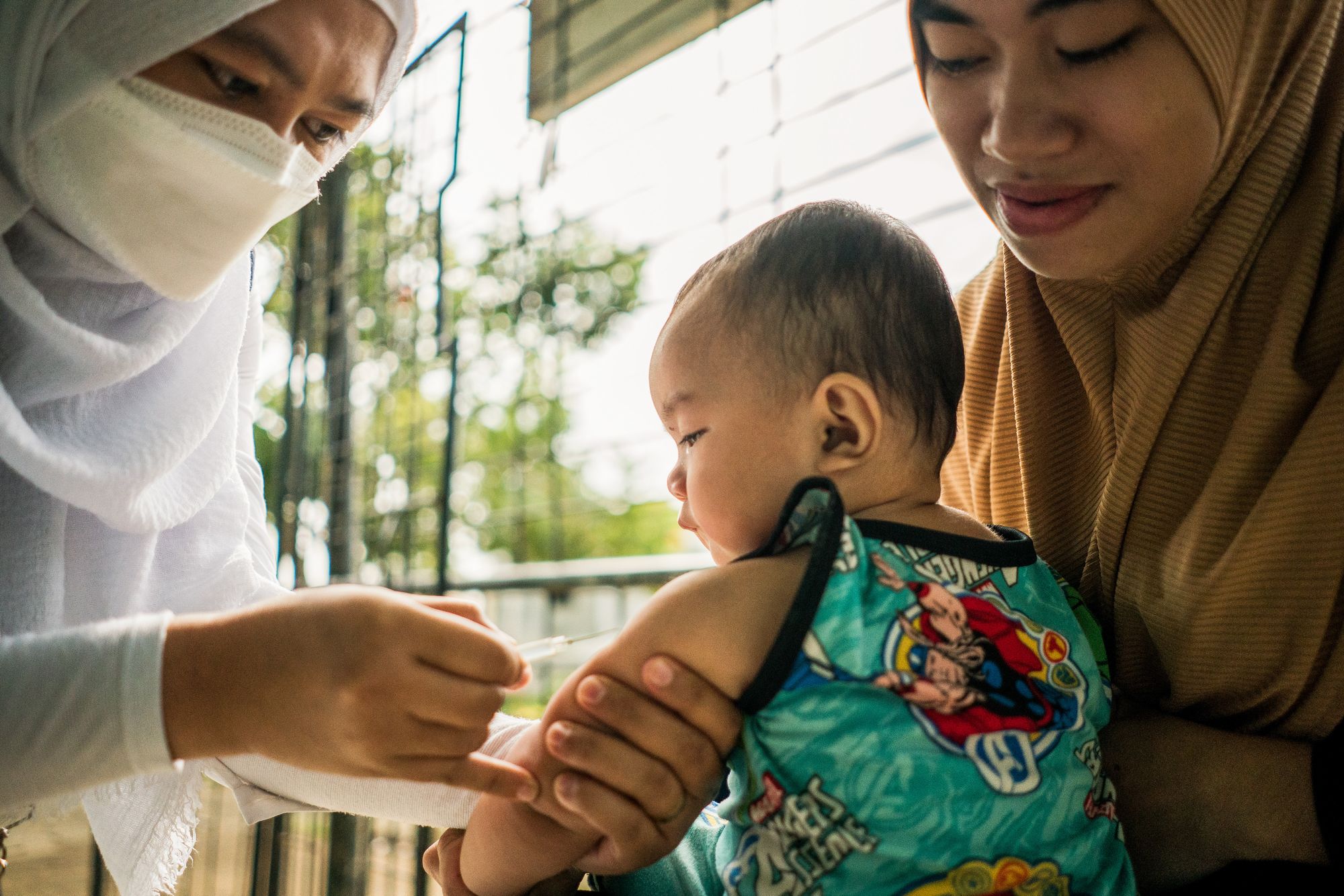
The European Court of Human Rights has ruled in favour of same-sex relationship recognition in Bulgaria, championing the rights of two women married in 2016. This landmark decision paves the way for greater equality, requiring Bulgaria to ensure the protection of same-sex couples' rights to private and family life. HRW
Two big wins for human rights in Asia. A lesbian couple in South Korea have welcomed their first child via IVF in a historic milestone for the country’s LGBTQ+ community; and Hong Kong's top court has ordered its government to legally recognise same-sex relationships, giving it two years to enact a scheme.
In the last decade Taiwan has shifted from lax alcohol control to a global exemplar of responsible drinking. Tighter advertising restrictions, revised taxation, and enforced minimum age laws have resulted in an 80% drop in alcohol-related traffic deaths and a 40% decrease in drunk-driving injuries. Think Global Health
For nearly as long as Medicare has existed in the United States, it has alarmed politicians and budget experts. Now, however, something strange has been happening. Instead of growing as it always had before, spending per Medicare beneficiary has nearly leveled off. 'Without a doubt, this is the most important thing that has happened to the federal budget in the last 20 years.' NYT

There are around 48 million kids eligible for preventive malaria drugs. In 2013, hardly any of those kids got them. In 2023, almost 100% will, with half the funding coming from The Global Fund and a third from donations to the Malaria Consortium, the charity made famous by Give Well. Effective altruism FTW.
China's aggressive 'war against pollution' over the past decade has led to a 42% drop in pollution levels since 2013. This remarkable progress has added 26 months to the average Chinese citizen's lifespan. Measures include restrictions on car usage, bans on new coal plants in polluted areas, and mandated cuts in emissions. CNN
Most people assume that unhoused people cannot manage their money. This is not true. Canadian researchers gave 50 people experiencing homelessness a one-time lump sum of $7,500, and the recipients spent it mostly on food, housing, transit, and clothing. They also spent an average of 99 fewer days homeless and spent less time in shelters—'costing' society less by doing so. Vox
Paris has revolutionised its water management, transforming the historic Canal Saint-Martin into a clean, swimmable waterway. Since 2009, the city has set up thousands of water fountains, reduced water prices by 8%, saved a million cubic metres of water a year by fixing leaks, and cut water usage by 10%. RTBC
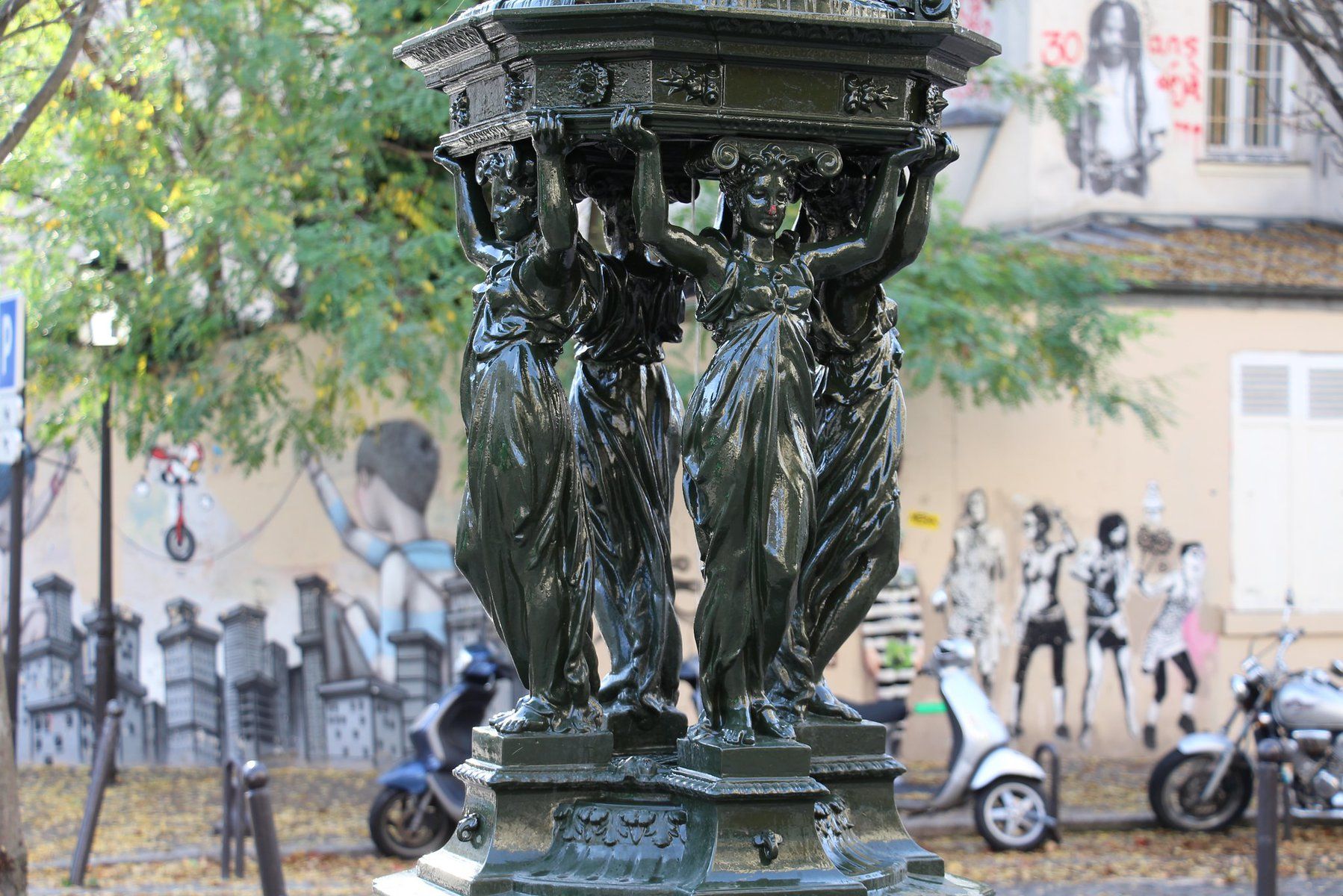
Even more good news you didn't hear about
In Sierra Leone, four in five births now take place in healthcare facilities, up from half a decade ago; in Bangladesh new funding will bring primary healthcare to 2.5 million children; in India almost 30,000 more children will survive past their first birthday this year compared to last year; and in Ghana, immunisation rates have skyrocketed thanks to drones. Scotland is planning to move to a four-day work week for civil servants; in London, all primary school students will now get free meals; and travelling through the world’s most traffic-heavy city just got a lot quicker (and greener). In the United States, the IRS is coming after millionaires for overdue taxes, and young people have become progressively less likely to use alcohol. Oh, and Chile just became the sixth country—and the first in South America—to implement a feminist foreign policy.
It's just $80 a year, or $8 a month, and a third of the fee goes directly to charity. Find out more by hitting the pink button.
If it bleeds, it leads

The only home we've ever known
The US government has cancelled oil and gas leases on 10.6 million acres of the National Petroleum Reserve in Alaska and prohibited all drilling in the Arctic National Wildlife Refuge. Alaskan oil production has dwindled in the last three decades, and the ban will protect grizzly and polar bears, snowy owls, migratory birds, and herds of moose and caribou. Reuters
The state of New South Wales in Australia has suspended logging in 106 'koala hubs' on the mid-north coast while they consider plans to establish a great koala national park. The hubs cover about 5% of the proposed 176,000 ha of forest and contain 42% of the recorded koala sightings in the area since 2000. Guardian
Mexico has joined a growing list of countries that are working to criminalise environmental damage, also known as ‘ecocide.’ If passed, the new Mexican bill could send offenders to jail for up to 15 years for 'any unlawful or wanton act committed with the knowledge that there is a substantial likelihood of severe and either widespread or long-term damage to the environment.' Guardian
Deforestation continues to decline in Brazil, with a 66% drop in August compared to the same month last year. President Lula has also designated another two new Indigenous reserves to protect almost 207,000 hectares of forest against illegal loggers and gold miners, and the government has removed thousands of cows owned by land grabbers in Ituna-Itatá, one of the most deforested areas in the Amazon.
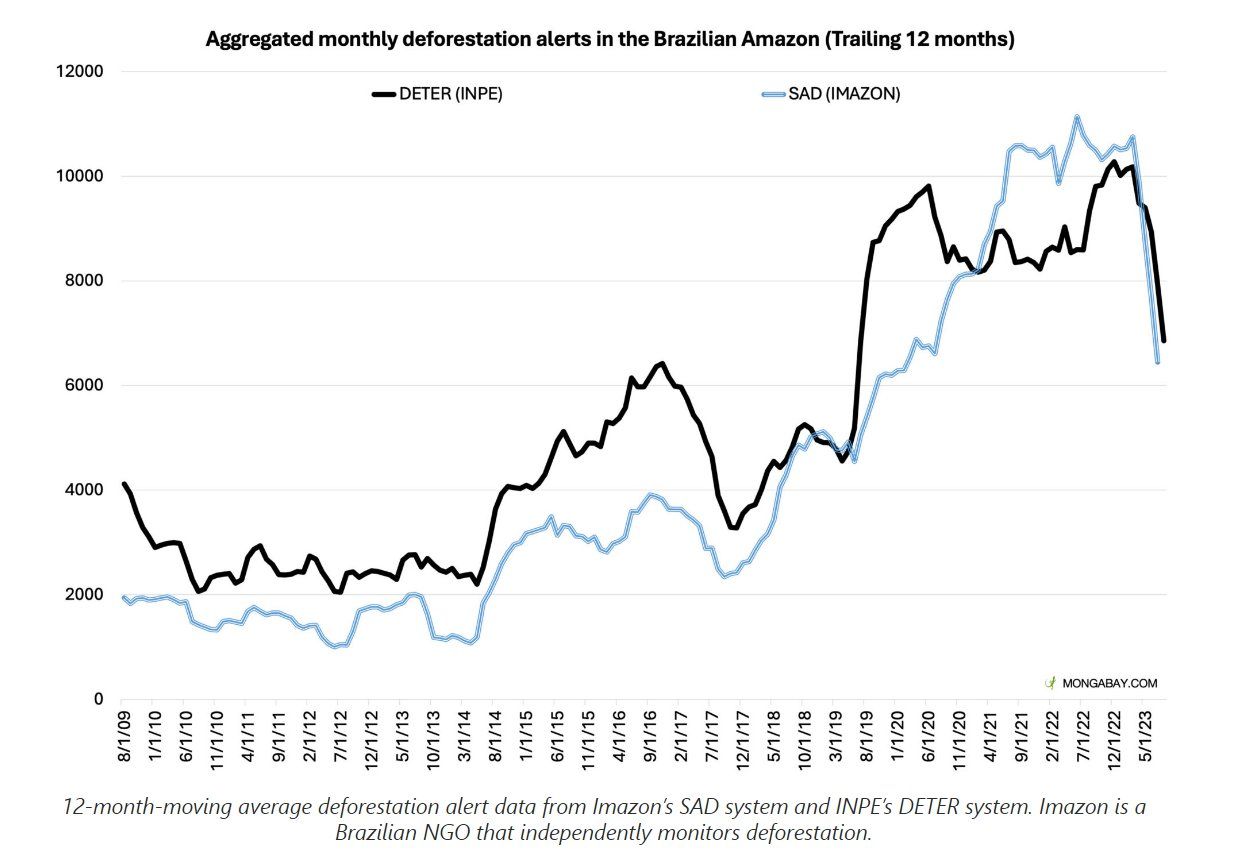
Since the late 1700s, engineers have worked to tame the Mississippi River to flow in a fixed course to reduce flooding and create shipping channels. However, in the face of accelerated land loss, they have changed to an 'engineering with nature' approach, with efforts to reconnect the river to the vast areas of its delta, and to reintroduce fresh water and sediment to restore the coastal system. Yale360
In a hard-won victory for environmentalists, new legislation in California will permanently protect the iconic Western Joshua tree, making it the state’s first law to focus on a climate-threatened species. Between 1895 and 2016, the annual precipitation in Joshua Tree National Park dropped by 39% due to rising temperatures. Guardian
It’s been a long journey to get here. We can finally move on from the debate over whether Joshua trees should get protection, to focusing on actually implementing measures to help ensure that they get through the very difficult decades ahead.
Brendan Cummings, Center for Biological Diversity
Wild Atlantic salmon in New England have had their most productive year in over a decade with more than 1,500 salmon counted in the Penobscot River in Maine, which is home to America’s largest run. Conservation groups have worked hard to remove dams and restore salmon in the area, and it looks like their efforts are paying off. AP
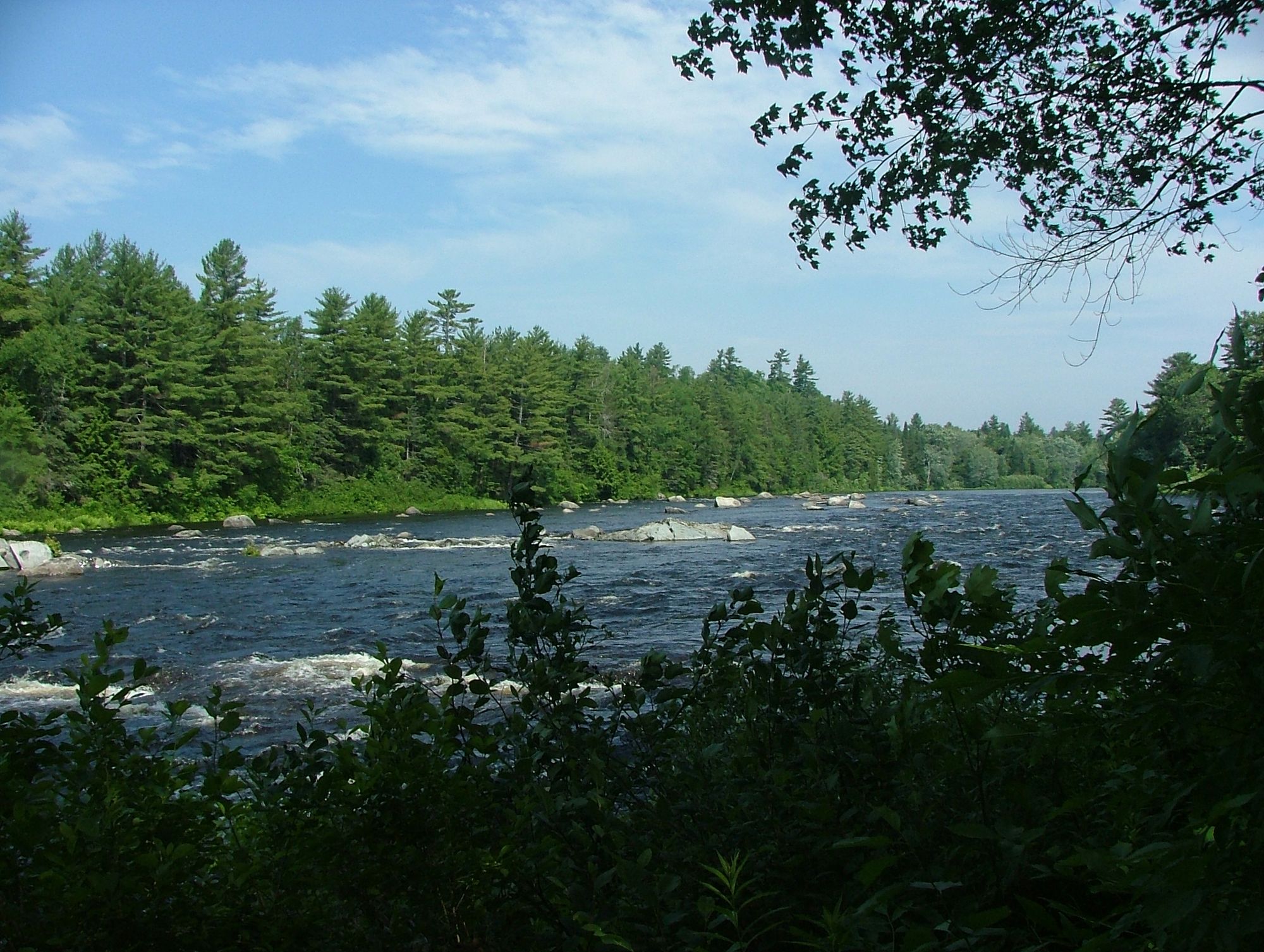
Peregrine falcons are back from the brink of extinction and are now flourishing across the USA, thanks to a decades-long collaboration between falconers and researchers. Since 1974, the reintroduction program has released over 6,000 peregrine falcons, and the species was officially de-listed as endangered in 1999. Gazette
If you want a success story, they are truly a success story. It's not all gloom and doom. There's not nothing that we can do.
Amy Ries, Decorah-based Raptor Resource Project
The newly designated ‘Archibald Lake Wilderness Area’ in Nova Scotia will protect 684 hectares of old-growth forest, wetlands, and three lakes. The area is home to 37 rare species, including seven that are endangered, like the mainland moose and Canada warbler. CBC
China has established the world's first International Mangrove Centre in Shenzhen to coordinate international cooperation and exchanges on mangrove protection. Boasting 35,000 hectares of wetlands, with 296 hectares dedicated to mangroves, Shenzen is planning to become a ‘wetland city’ by 2035, with 50 percent of its wetlands under protection. China.gov
A few more home runs
Humpback whales have made a spectacular recovery in the Salish Sea. A new ruling from the EPA will protect waterways in the USA from harmful vessel discharges. Atlantic puffins in Maine have enjoyed a second consecutive rebound year with a stable population of 3,000 birds. Conservation groups in Minnesota have saved the Boundary Waters Wilderness Area from two mining leases. California has four new packs of endangered grey wolves, bringing the grand total to eight new wolf packs since 2015. The number of wild golden eagles in Scotland has risen to its highest level in 300 years. Elephant populations in southern Africa have increased by 5% since 2016 to nearly 228,000, and conservation group African Parks will release 2,000 southern white rhinos into the wild after buying the world's largest private captive rhino breeding operation.
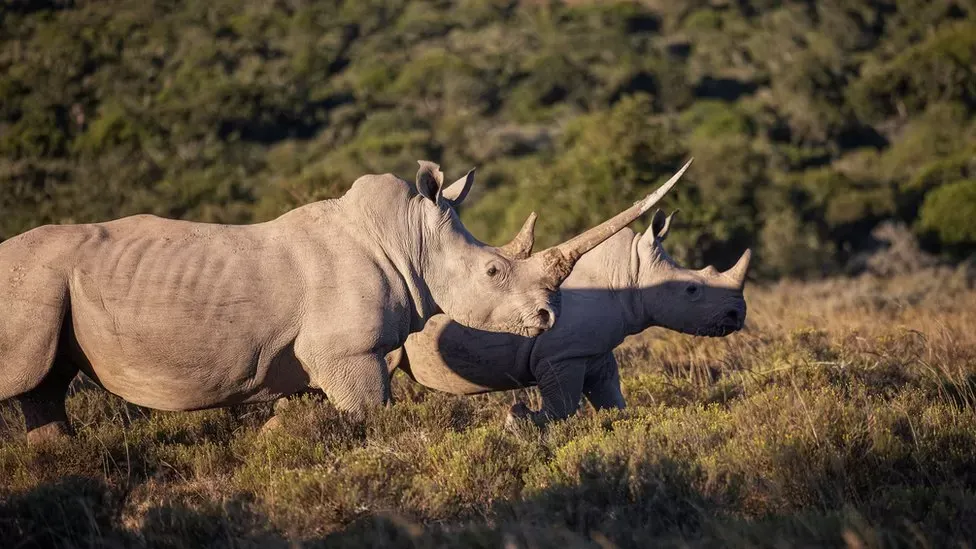
That's a wrap, thanks for reading :) We'll see you next week.
With love,
FC HQ





